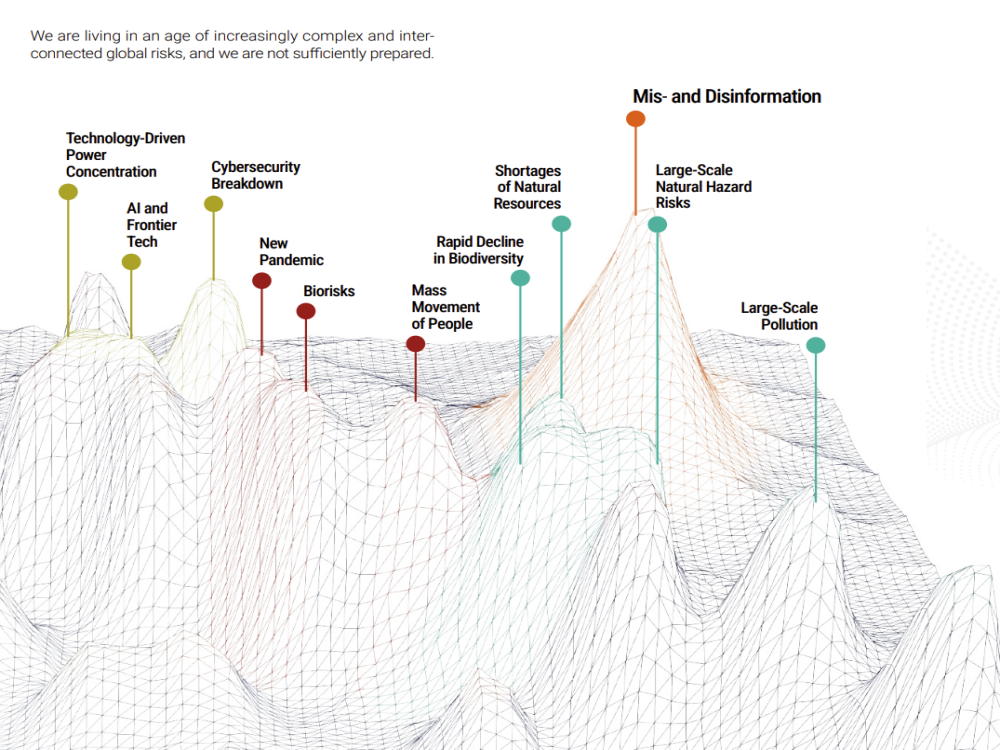What's on the horizon for AI and public libraries?
Part 4 of a series on AI for public library staff

Artificial intelligence (AI) is driving dramatic change in our world. It is a transformative tool, revolutionizing industries and impacting daily life. As we conclude our series on AI, we want to explore what is on the horizon in the AI landscape. By staying on top of these evolving AI issues, library staff can build on their information skills to position themselves as AI literacy experts to educate the public and be at the table for shaping AI’s societal impact.
The tremendous power of AI
AI’s power lies in its ability to analyze vast amounts of data, learn from experience, and perform tasks that typically require human intelligence, often with greater accuracy, speed, and efficiency. Collecting, interpreting, and reporting data are critical functions for libraries, so it’s no surprise that AI’s power is reshaping public libraries.
As libraries fulfill more complex roles and adopt more sophisticated systems, more data is available to help facilitate decision-making and to tell the library’s story. This reality can present challenges in knowing what data to use and how to draw accurate conclusions. AI can process and synthesize large and mixed data sets to quickly generate insights and create narratives. Readily available standalone AI products or solutions integrated into existing library tools can be used to automate processes, inform and represent collections, boost programs and community engagement, and provide entirely new services. However, patron privacy should always be considered, and personally identifiable information should be removed from library data submitted to AI tools.
Pottsboro Library participated in an intensive AI Readiness for Nonprofits Pro Bono Consulting Workshop and collaborated with Dell team members around the world to identify needs that AI could address. The Pottsboro Library team focused on data collected in their ILS as well as community data to learn what it could tell them about user trends and service, collection, or outreach enhancements that made sense to pursue. For example, to help guide purchasing decisions, staff used AI to find books often checked out in Libby—an e-book subscription—but without print copies in their collection. They also did a zip code analysis, looking at the distribution of patrons who use the library to see if outreach or promotion in a particular zip code led to an increase in cardholders from that area. Finally, they were able to use plain language to query AI about children’s book circulation data in physical and digital formats for their annual report and did not have to use any advanced Excel skills to present the data effectively and efficiently.
Some limitations and concerns
While the power of AI can be remarkable, the cautions that accompany this technology are significant. The volume of AI output circulating on the web is immense and growing. It’s important to always evaluate AI-generated content carefully to avoid bias and misinformation.
According to the New York Times, as AI companies search the web for new data to train their next models, they are likely to ingest some of their own AI-generated content, “creating an unintentional feedback loop in which what was once the output from one A.I. becomes the input for another.” This process results in a narrower range of AI output over time—an early stage of what researchers have called “model collapse.” When these models are trained on their own words, their output shows less linguistic diversity. Furthermore, this process can amplify bias in the data. This is important background information for library staff who might be leading workshops on AI with the public.
The ability of AI to impersonate someone’s voice has dramatically improved, so incidents like someone posing as American Secretary of State Marco Rubio and contacting foreign ministers, a governor, and a US Senator will become more common. This sophistication in AI is causing even The Atlantic’s CEO Nicholas Thompson to say, “It’s hard to tell what’s real—very hard.” The jobs of library staff who are actively involved in teaching information literacy skills are becoming increasingly difficult.
The legal issues surrounding copyright and privacy concerns are working their way through the US court system. A federal judge in San Francisco said Anthropic made “fair use” of books by several authors without their consent to train its Claude large language model. In the ruling, the judge asserts, “Like any reader aspiring to be a writer, Anthropic’s LLMs trained upon works not to race ahead and replicate or supplant them—but to turn a hard corner and create something different.” This ruling is only one of many that will determine the future of AI and how intellectual property is viewed. Library staff will need to stay abreast of this issue so they can answer patron questions about this rapidly changing area.
The environmental impact of the AI revolution is significant and not fully understood. The journalists at the MIT Technology Review took a deep dive into this topic and concluded, “Crucially, there’s a lot we don’t know; tech giants are largely keeping quiet about the details. But to judge from our estimates, it’s clear that AI is a force reshaping not just technology but the power grid and the world around us.” Library staff should continue exploring the environmental impacts of AI as they respond to patron questions about AI, its adoption, and its future.
How libraries can lead into the future
The UN Global Risk Report analyzes data from 1,100 respondents in 136 countries about their perceptions of the importance of 28 risks across society, technological, economic, environmental, and political categories. Mis- and Disinformation was perceived to be an extremely important risk but a risk for which the international community is deeply underprepared. This affords a great opportunity for librarians to build on their expertise to teach AI literacy and digital skills, preparing patrons for an AI-driven world.
The need to act is clear, and libraries are a trusted place to turn for reliable information. A case study of Queens Public Library describes the library staff being invited by the local church to deliver presentations on the implications of AI for clergy. This invitation shows that the library is a valuable resource in the community to help the public educate itself and prepare for the future during this AI revolution.
Chris Markman from Palo Alto City Library suggests thinking of librarians’ role as quality control: “We play a critical role in ensuring AI-generated content aligns with our values and is accurate, responsible, and reliable.” Dianne Connery from Pottsboro Library adds, “We really do have an obligation to be at the table at the highest levels when all these decisions are being made by our governments. I think librarians are the perfect people to be at the table to discuss what this should look like.” Jon Braun from LibraryLinkNJ offered another suggestion in the chat during WebJunction’s recent “AI and public libraries” webinar: “I feel we have a responsibility (as information professionals) to influence and educate the public's use of these tools. We have to help outweigh the unethical uses with intentional use and mindful integration into our systems as a better example than currently exists at large.”
In December 2024, Peter Brantley and Gary Price presented a talk for CNI on the role of libraries in the AI revolution. The following is an AI summary that they provided of their presentation: “Our role isn't just adapting to change – it's guiding institutions and users through this technological revolution while maintaining critical information standards. By embracing agility, avoiding single-solution dependencies, and leveraging cross-industry insights, we're building a future where libraries remain central to knowledge access and verification in the AI era.” This can serve as a vision for the future.
Resources:
Enis, Matt. 2024. “AI and the Public.” Library Journal, 11 November 2024.
Mannheimer, Sara, et al. 2024. “Responsible AI Practice in Libraries and Archives: A Review of the Literature in Information Technology and Libraries.” Information Technology and Libraries, 43(3).
O’Donnell, James and Casey Crownhart. 2025. “We did the math on AI’s energy footprint. Here’s the story you haven’t heard.” MIT Technology Review, 20 May 20 2025.
Tan, Eli. 2025. “Their water taps ran dry when Meta built next door.” NYTimes, 14 July 2025.
Lankes, R. David, Jain Orr, and Qianzi Cao. 2025. Triptych: Death, AI, and Librarianship.

